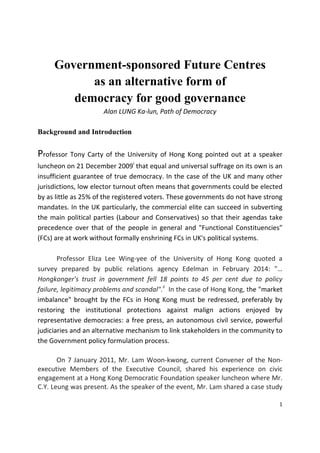This document discusses alternatives to the current democratic system in Hong Kong that could improve governance. It proposes establishing government-sponsored Future Centres, modeled after similar organizations in Europe. These centres would engage stakeholders in policymaking through research and civic participation. They aim to address issues like policy failures, lack of consensus building, and the government's limited capacity to solve complex problems. The document argues Future Centres could help re-establish public trust in government and alleviate irrational discussions in politics.











